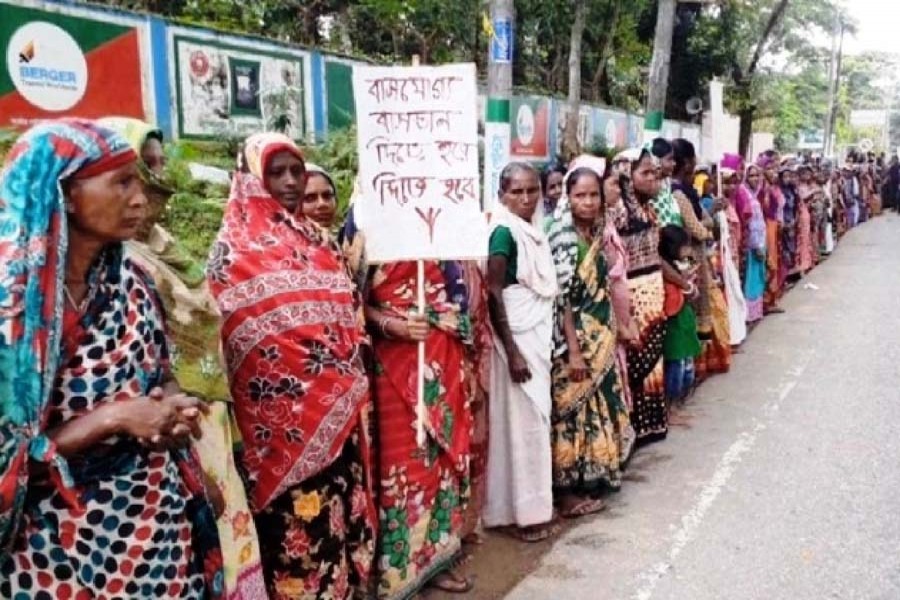Tea workers across the country have enforced an indefinite strike since Saturday demanding a raise in their daily wage to Tk.300. Notably, at present, tea garden authorities pay them a daily wage of Tk.120. Bangladesh Tea Workers' Union (BTWU) has called this strike on Friday (Aug 12).
Given the unabated and runaway price hike of essential commodities, especially following the recent jump in the fuel oil prices, it is not hard to understand why these low-paid tea workers have taken to the streets. True, the recent fuel price hike has acted as a catalyst for their calling the strike. But to be exact, their movement for increasing daily wage is a continuation of their long-standing demand. It is worthwhile to recall that in October 2020, the BTWU reached a deal with the Bangladesh Tea Sangsad (BTS), the association of the tea garden owners. The agreement included the provision of a two-yearly revision of the tea workers' wages. Accordingly, a revision of their wages was due in January 2021. However, there was no such move from the BTS's side to implement the agreement. So, the present tea workers' strike has been called as a protest.
But how much power these striking tea workers can wield in terms of their number and organisational ability to put sufficient pressure on the tea garden owners to meet their demand?
In fact, they are only trying to make their just demand heard. And their method is peaceful as demonstrated through the human chains, protest demonstrations and mildly disrupting road blockades they organised particularly in the greater Sylhet and Chattogram regions where most tea gardens of the country are situated.
But they definitely lack the number and power that some other organisations possess.
The members of the public are well aware of the strikes that workers of the Readymade Garment industry, the transport workers, labourers of the jute industry and various other sectors of the economy enforce from time to time. And those labour movements get wide publicity in the media.
In the case of strikes with demands for hike in bus or launch fares, for example, those in authority have often to listen to and accept those demands under sufferance.
It is the organised disruptive power of the transport operators that helps them to push their demands through the government bureaucracy so quickly.
Unfortunately, many other social groups do not enjoy that kind of privilege and so are not granted an instant audience from those in authority.
The tea workers are perhaps one of those most neglected and exploited social groups in the country. Worse yet, they are not even a part of the mainstream society. They basically live within the tea garden areas deprived of the basic amenities to live a decent life.
There are more than 140,000 tea workers (both registered and casual, according to the Statistical Handbook on Bangladesh Tea Industry) spread among 166 teagardens in the country.
They were actually brought from outside Bengal of then-British India in the 1840s to work in the tea gardens established at that time in the Sylhet and Chittagong areas of present-day Bangladesh.
They were mainly surplus agricultural workers from different parts of the subcontinent including Odisha, Uttar Pradesh, Madhya Pradesh, Bihar, Ranchi and Santal Pargana. The British tea company agents dangled the false promise of a better life with good pay to trap those hapless people into enslavement as tea workers.
In 1921, they tried in a body to flee to their ancestral homes. But their attempt was brutally crushed.
The British left long ago. Now it is Bangladesh. But the tea workers' lot has not changed.
Their demand for Tk.300 daily wage, even if implemented, is not going to bring any qualitative change in their lives.
The government needs to do something to lift this forgotten community of tea workers out of abject poverty.
sfalim.ds@gmail.com


